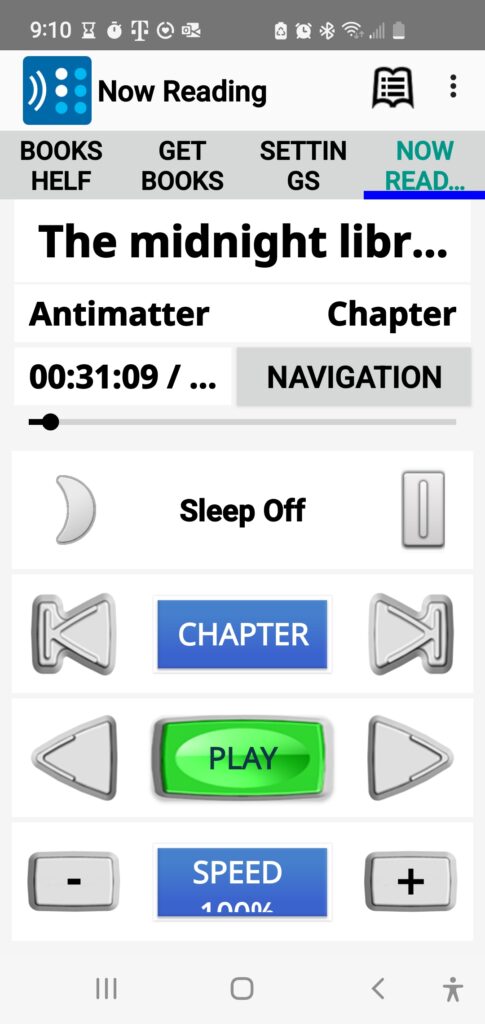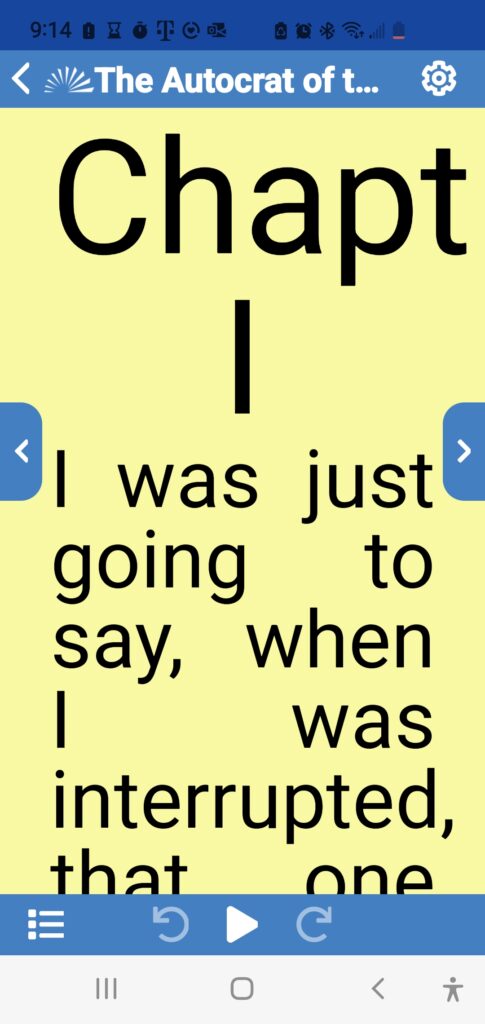March ushers in Read an eBook Week. It’s the perfect time to celebrate how digital eBooks have transformed reading for those who find print difficult or impossible to read. Methods for accessing and reading eBooks vary. Regardless of your blindness, low vision, or comfort level with technology, there is a way to read.
NLS
One of the easiest ways to dive into eBooks is the free Talking Book program from the National Library Service for the Blind and Print Disabled (NLS) (888-657-7323). The Talking Book program is a federal program. The Library of Congress will send you a talking book player that plays eBooks on a digital cartridge at no cost. The player is about the size of a portable cassette player and is pretty easy to use. Books and magazines are placed on cartridges and mailed to patrons with postage-paid packaging to return them to the library. You can order books by calling your network library. Slide the cartridge into the player, press the “Play” button, and sit back to listen to the audio material. A human narrator reads each book or magazine, so it’s like having a personal human reader.
NLS on Smartphones and Tablets

For smartphone or tablet users, there are even more options. Talking Books are available through BARD Mobile, which works on iOS and Android. Users can download eBooks and magazines (in audio and braille formats) immediately to the app rather than waiting for cartridges to come in the mail. Like the talking book player, the app is easy to use, free, and has some great features, including a sleep timer.
NLS eReader
For braille readers, NLS offers an electronic braille eReader at no cost. Patrons can download books via Wi-Fi on the device and read using the 20-cell braille display. Patrons can download up to 250 titles monthly using BARD services, including the mobile app and eReader.
Bookshare
Bookshare (650.352.0198) offers over a million book titles to subscribers who are blind, low vision, or have a print disability. Bookshare is $79/year or free for students. Subscribers can download up to 100 books a month. In some states, the NLS network library talking book program may cover the costs of Bookshare titles. Registered members of Hadley are considered students by Bookshare, and the annual subscription fee is waived.
Accessing Bookshare Material

You can read Bookshare books on a computer, the Amazon Alexa smart speaker, a smartphone, or a tablet. Most books from Bookshare are in a digital text format that you can read via an app. Although some of these electronic voices are very human-like, they are not the same as those of a human narrator for some readers.
On the computer, you can read eBooks right in the web browser from the Bookshare website. You can install Bookshare Reader, Dolphin Easy Reader, or Voice Dream Reader on a smartphone or tablet to download and read books. When using Amazon Alexa, say, “Open Bookshare Reader,” and follow the instructions and prompts.
eBooks at Your Local Public Library
Many public libraries are lending eBooks using services such as LibriVox and cloudLibrary. Both of these services require an app on the computer or smart device. EBooks can be downloaded and read for a specific amount of time before they time out — usually within several weeks. Like physical library books, you can renew them without a waiting list. Both of these services are also free from most libraries. However, The disadvantage of these alternatives is that you may sometimes need to wait for the book you want. Some features of the apps may be less compatible with screen reader users than those for BARD or Bookshare, specifically designed with usability in mind.
Overcoming Obstacles
For people who are blind or low vision, there are many options for reading eBooks. One of the biggest obstacles may be our ability to transition from reading print to reading digital eBooks, where an electronic device reads in a computerized voice or listens to a human reading the book. It is a different experience, and for some, it may seem less satisfying. It is truly amazing how these eBooks have transformed the ability and ease with which we can read an ever-increasing number of books for free or a small fee. People who lose vision or become blind may think reading is more difficult, but technology opens the door to more books than we can ever hope to read.